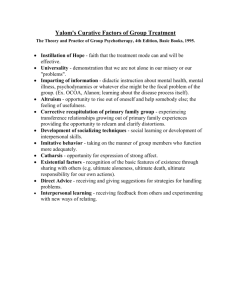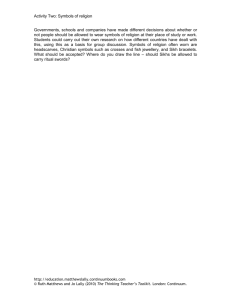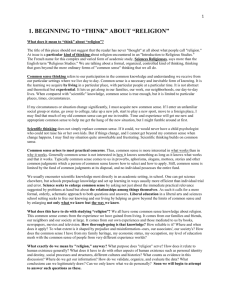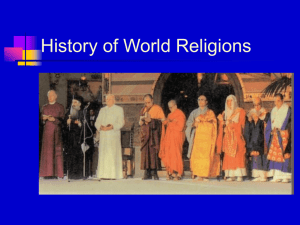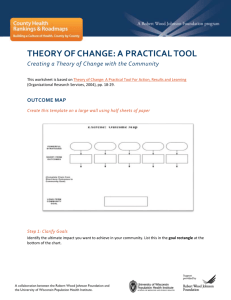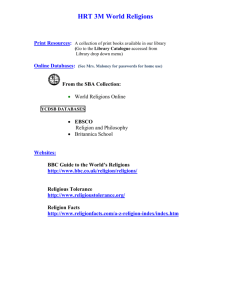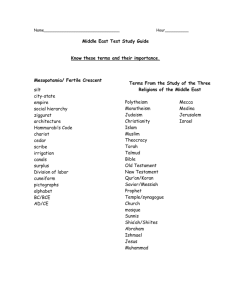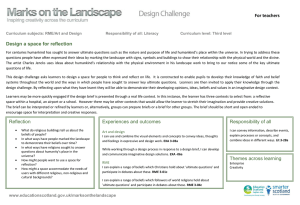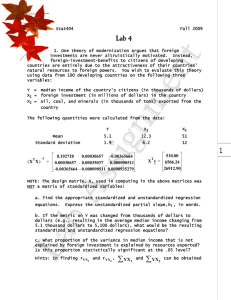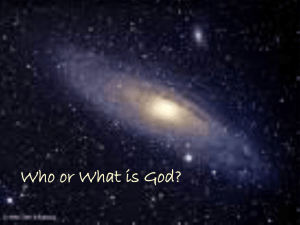Religion - WordPress.com
advertisement
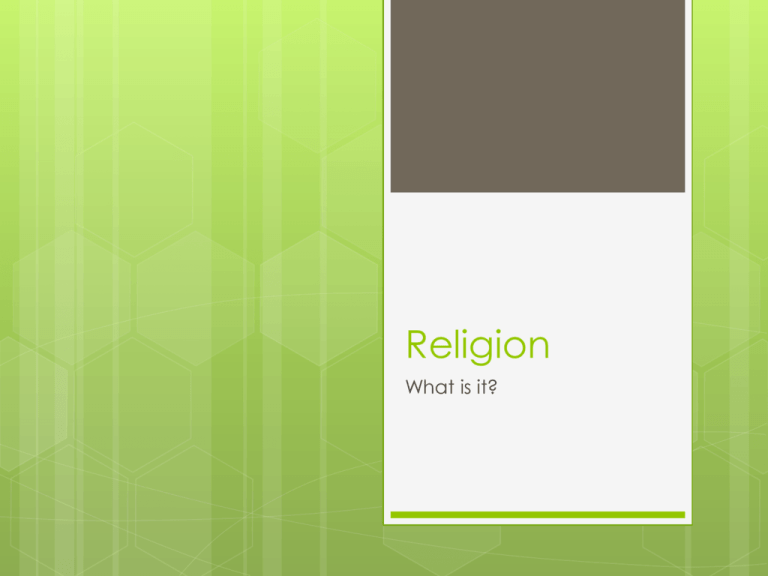
Religion What is it? Etymology of Religion From the Latin: Relig(are): “To tie, to bind” Relig(io): “Conscientiousness, piety” Relegere: “To read over again” Difficult to Define Crosses over so many human experiences Difficult to tease out Run into two problems 1). On one had it can be too broad – Includes what we would not consider a religion 2). On the other hand it can be too narrow – Excludes what we would consider to be a religion Useful to note/list characteristics General Approaches to Religion http://studyreligion.org/what/index.html A way to make sense of natural world/forces Human reaction to the sacred Addresses ultimate human concerns (death, meaning of life, how to live, etc.) Provides or creates meaning for human life Grows out of profound internal experiences (of God, higher power, etc.) Psychological: Grows out of psychological need Sociological: Way to bring a community together/develops out of social need Political/Power structure: Power structure that favors those in charge and used to control those who are not Biological: Byproduct of biological and physiological processes The Worlds Religions Huston Smith’s definitions and musings Page 2 “What a strange fellowship this is, the Godseekers in every land, lifting their voices in the most disparate ways imaginable to the God of all life. How does it sound from above? Like bedlam, or do the strains blend in strange, ethereal harmony? Does one faith carry the lead, or do the parts share in counterpoint and antiphony where not in full-throated chorus? We cannot know. All we can do is try to listen carefully and with full attention to each voice in turn as it addresses the divine.” Page 9 & 10 “Authentic religion is the clearest opening through which the inexhaustible energies of the cosmos enter human life” “Religion is not primarily a matter of facts; it is a matter of meanings” Page 19 “For though in some watered-down sense there may be a religion of self-worship, true religion begins with the quest for meaning and value beyond selfcenteredness. It renounces the ego’s claim to finality.” Characteristics Common to Most Religions (Page 93) Authority Ritual Speculation Tradition Grace Mystery Theology (Page 339) “Faith’s focal attention is on a vision of reality that sets morality in motion, often as a byproduct almost. Religion begins with experience; “belief, ritual, and spiritual experience, and the greatest of these is the last.” Because the experience is of things that are invisible, it gives rise to symbols as the mind tries to think about invisible things. Symbols are ambiguous, however, so eventually the mind introduces thoughts to resolve the ambiguities of symbols and systematize their intuitions.” James’s Definition “In its broadest terms, religion says that there is an unseen order, and that our supreme good lies in rightful relations to it” William James, The Varieties of Religious Experience, quoted by Huston Smith on page 319 of The World’s Religions Smith’s Definitions (Page 183) Broad sense: “A way of life woven around a people’s ultimate concerns.” Narrow sense: “A concern to align humanity with the transcendental ground of existence.” Your Understanding of Religion The following slides review how you and your classmates have tried to define religion, both from an academic and from a personal perspective Your definitions Organized “school of thought” that explains or gives meaning to human existence Set of beliefs and practices, rules, or way of life that: Accomplishes a goal Improves human life on the social and individual level Creates social and moral order (social glue, social contract -- some of you really adopted the Confucian idea) Deepens our understanding of: Ourselves, the world, and others Internal and External About the connection between what is within an individual and what is external (god, community, environment, etc.) “Religion is the external impression of what is begun in the mind and heart. Religion seeks to form an outward organism around the internal and spiritual dimensions of existence. Based on what one believes, they seek to express that through outward means so that what they believe is more concrete and tangible. Without the use of religion, then ambiguity arises and it is difficult to form a clear understanding and way of life based on the internal faith.” God? Some said God was necessary since this higher power perspective is the only way to get at the set of practices, etc. that can improve life or the only external that can truly connect to the internal of an individual. Others emphasized the social aspect. Religion seems to almost always involve a connection to or involvement with a community. Your personal understanding Involves a higher power, a clear set of recorded teachings, and a set of practices that, when followed, improve the connection of the practitioner to that higher power and allow the practitioner to find peace and love Acknowledging/worshiping a higher power (within self or separate being) Does not place ultimate value in human life/human being. Seeks some ultimate meaning to life outside of the human: i.e., an afterlife, enlightenment, etc. Belief in how to live life based on beliefs about life’s purpose and meaning. Work to increase happiness and avoid pain Rituals/traditions bring enjoyment Used as a crutch and to explain what we have not yet discovered through science
